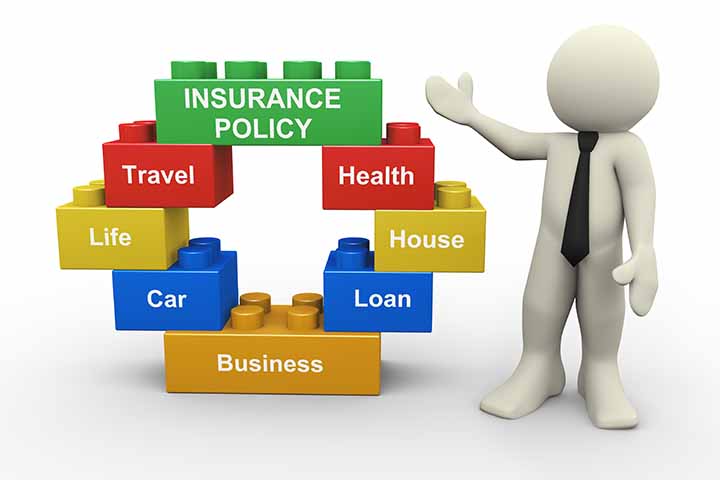18 Jan 2019
Accident Insurance: How to Know When You Need It

Most consumers know the basics of life and health insurance, and even disability income protection. But one type of personal insurance that isn’t nearly as well understood as it should be is personal accident insurance.
In fact, unless you work in the insurance industry, you may only have a vague sense of what accident insurance is—and no, we don’t mean auto insurance. Simply put, accident insurance pays a benefit to you and/or your family in the event you’re injured or killed in an accident. When weighing your overall insurance needs and options, it’s smart to consider accident insurance.
For one thing, it’s highly affordable. For another, it’s generally easier to obtain than other types of insurance, although it helps fill gaps in those primary coverages. But not everyone needs accident insurance all of the time. Here’s how to know when to put it to work for you.
What Accident Insurance Covers
“Accident insurance” is an umbrella term that encompasses several types of different coverage. Sometimes, you’ll find these all in one policy; sometimes they’re offered on a standalone basis:
- Accidental Death and Dismemberment (AD&D) – AD&D pays a lump sum benefit to your beneficiaries if you’re killed as a result of an accident and pays a smaller sum if you lose a limb or an eye. The benefit is paid in addition to any life insurance you may have.
- Accident Medical Benefits – This type of coverage generally pays lump sum benefits for various medical expenses incurred as a result of an accident. For example, if you break your leg, your policy may pay $400 for the ambulance, $500 for the ER, $1,000 for surgery and $1,500 for your hospital stay—all paid in addition to health insurance.
- Accident Disability Benefits – If you’re injured in an accident and can’t work—or can only perform some of your duties—this coverage will pay a percentage of your monthly income. If you’re injured on the job and collect Workers’ Compensation benefits, these benefits may be reduced by your Workers’ Comp benefit, depending on your policy.
In addition, there are specialized types of accident coverage for employees, including business travel accident for executives and salespeople, occupational accident protection for professional drivers and voluntary group accident coverage that employers can make available to everyone.
“That Won’t Happen to Me” Syndrome
We’re all familiar with the term, “accidents happen,” but most of us tend to think they happen to other people, not us. However, statistics don’t lie—we’re all at greater risk than we think. For example:
- Accidents are one of the top three causes of death worldwide, along with heart disease and cancer, according to the S. National Safety Council.
- Injuries are the leading cause of death in Americans under age 45, according to the Centers for Disease Control.
- Car accidents are the most common fatal accident. The odds of dying in a car accident are one in 114, based on National Safety Council data.
- Other leading causes of accidental death in the U.S. include falls, firearms, pedestrian accidents, drownings, and fires, according to that same source.
While these aren’t pleasant to think about, they’re a good reminder that accidents are part of life.
5 Situations When You Will Need Accident Insurance
If you have ample life, health and disability insurance, you probably don’t need extra accident insurance right now. However, in the following situations, accident insurance can provide valuable financial security that is otherwise missing:
When You Don’t Have (or Have Enough) Life Insurance
If health issues make it hard for you to qualify for life insurance, or if you can’t afford the premiums, AD&D is a great solution. Not only is it economical, most policies require no or minimal medical underwriting. It especially makes sense if you’re young, since accidents are the leading cause of death under age 45.


When Your Health Insurance Plan Has Gaps
If your health insurance has a high deductible, high coinsurance percentages or a limited provider network, accident medical insurance—which pays out flat benefit amounts for specific medical services—can reduce your out-of-pocket costs and pays in addition to health insurance.
When You Don’t Have Adequate Disability Income Protection
Perhaps you’re self-employed, work part-time, or your employer doesn’t offer disability insurance. With accident disability benefits, you’ll still have dependable income in the event you’re injured and unable to work.
When You Drive Extensively
Car crashes are the most common type of fatal accident, so if your job places you on the road frequently—as with a truck driver, delivery person, salesperson or service technician—you can benefit from accident insurance. Find out what protection your employer provides, and consider supplementing it if it doesn’t seem like enough.
When You’re Engaged in High-Risk Work or Play
Obviously, some lines of work—such as construction and law enforcement—are more hazardous than others. The same can be said for certain pursuits or hobbies, such as motor cycle riding, scuba diving, etc. If your lifestyle puts you at a higher-than-average risk, you might want to invest in accident insurance, especially if you have a family depending on you. Tip: before you purchase a policy, be sure to check the exclusions; some jobs and activities aren’t covered.
If you do decide that accident insurance makes sense for you, do your research. See what coverages are available from insurance carriers that you know and trust. Review the benefits, costs, terms and exclusions of specific plans.
How do we know so much about accident insurance? PALIG has been a reliable carrier in this market for many years. If you need accident insurance, learn more about the thoughtful plans we offer to individuals and their families.


